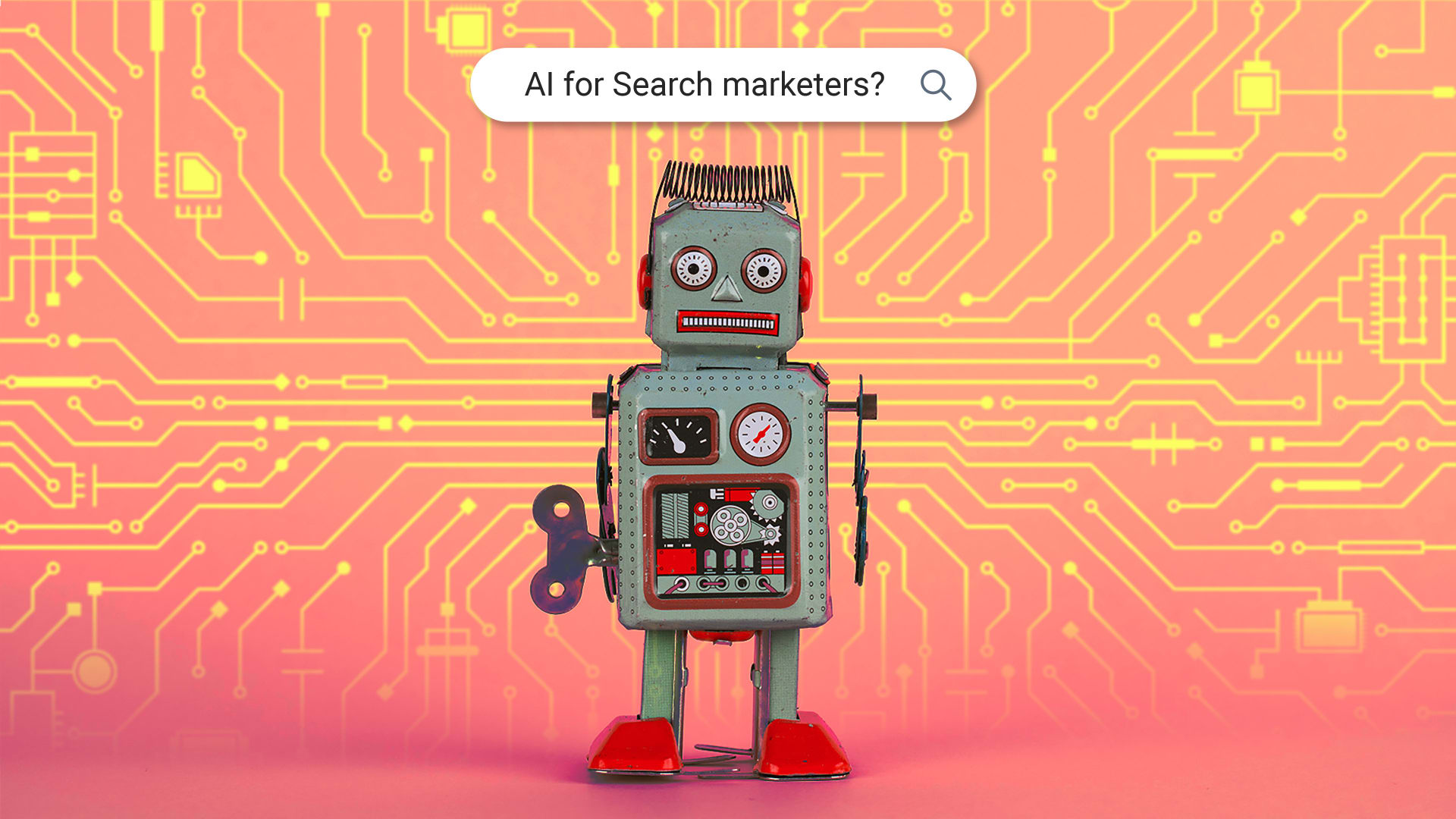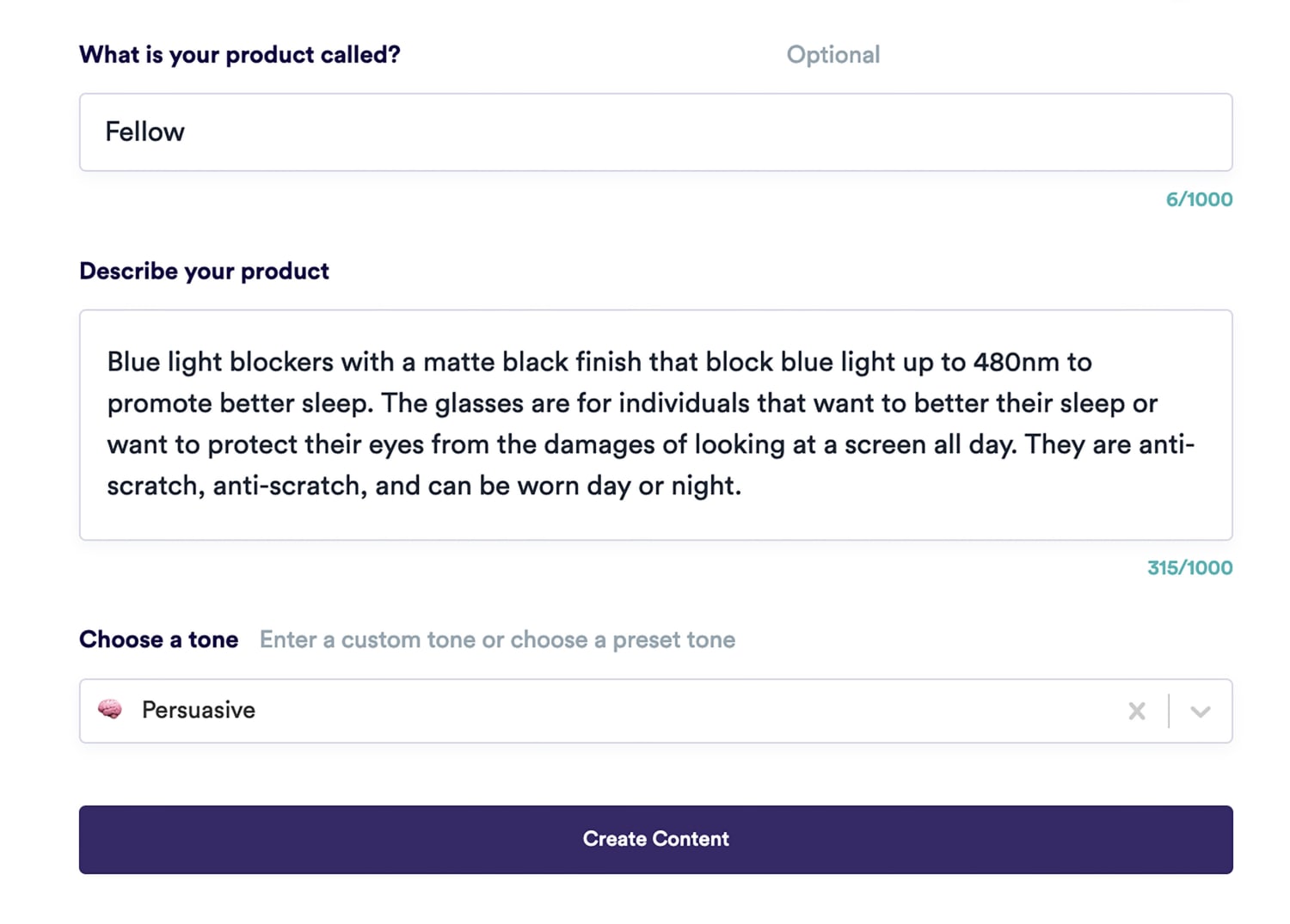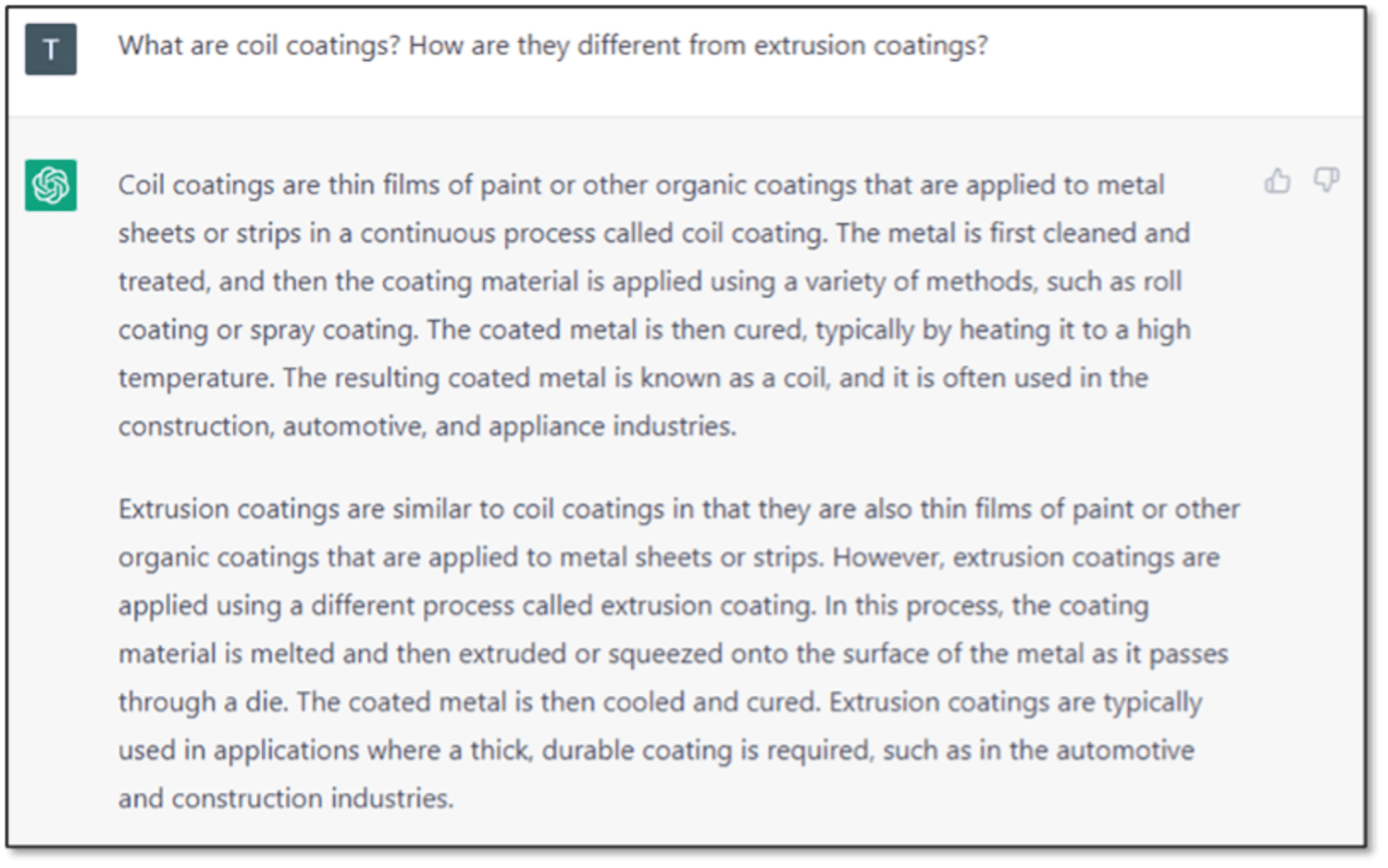While these tools can produce well-written content, it is not recommended to utilize AI-generated content as published web content. Search engines, particularly Google, can and will continue to evolve their ability to detect AI-written content and will remove it from the search engine index as it directly violates their spam policies.
Although it is not recommended to use auto-generated content as web content, a marketer could take the output from an AI tool and add valuable human input (input that helps customers and users) to enhance what was written by an AI platform. It is important to add valuable human input as AI-powered tools lack legitimate expertise and understanding of a customer's needs. After all, it is the job of marketers to understand what drives a consumer’s need and then determine strategies to solve that need.
Chatbot AI Tools
Chatbot AI tools (ChatGPT or LaMDA) that have been trained on a vast amount of data are very powerful—they enable users to ask questions and receive high-quality textual responses. Although these chatbots can generate content in a comparable way to content-generating AI tools, they can lack uniqueness. Because of this, it’s important to remember that the primary function of chatbot AI tools is to hold a conversation with the user.
Marketers can utilize this technology in numerous ways, from asking the chatbot to write regular expressions for improved reporting to creating a blog article. To reiterate, however, using outputs from AI tools will directly violate Google’s spam policy and will negatively impact your, or your client’s, organic performance. Equally important, utilizing non-human tools can create impersonal relationships and hurt consumer loyalty.
When using these tools, rather than asking the chatbot to write a blog article, a marketer should prompt the tool to write an outline on a topic to speed up the content creation process.
The use cases for chatbot AI tools seem nearly endless and one of the most impactful uses for marketers is leveraging the tool’s knowledge to quickly learn about a business, clients, and/or industries. When consultants transition onto a new account, there’s always a buffer period that is required for them to truly understand a client’s business, industry, customers, and products. The images below display a conversation with ChatGPT that has rapidly decreased the amount of time it would normally take for a marketer to understand the client and their needs.










